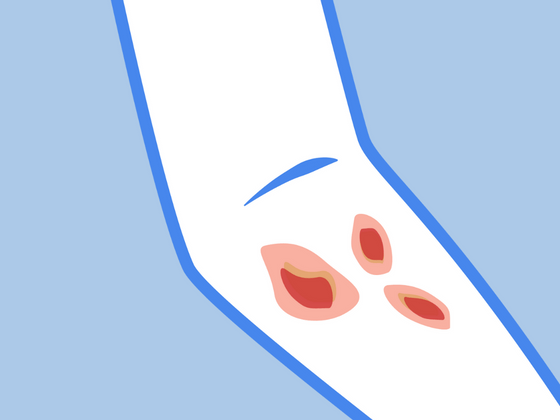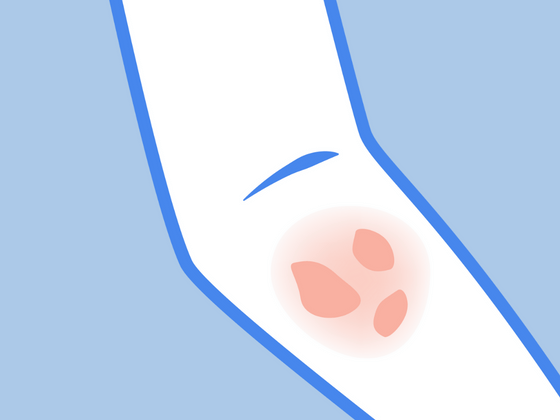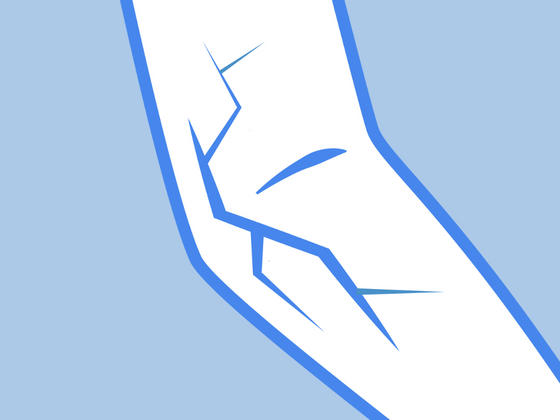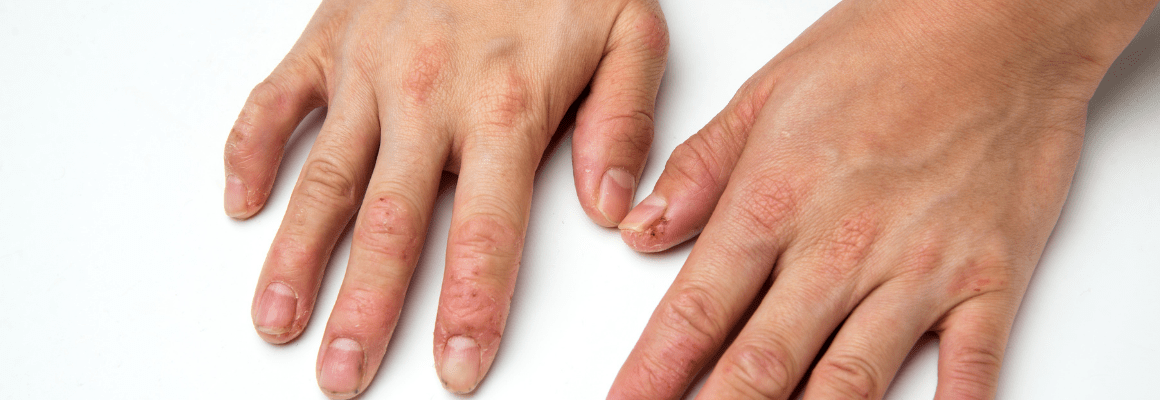With the summer season upon us, you may be wondering: can heat cause eczema? That’s a great question! The truth is, both hot and cold weather can have an effect on your skin. In fact, extreme temperatures are a common eczema trigger. In this post, we’ll provide some helpful information on how to enjoy your summer without aggravating your sensitive skin.
Please keep in mind that although what we discuss in this post can relieve eczema, we are in no way medical professionals. If you’re experiencing severe eczema symptoms like an infection, it is best to seek medical advice immediately.
Does Sun Affect Eczema?
Yes, the sun absolutely affects eczema.
According to a 2017 study, exposing skin to the sun can help reduce eczema symptoms. It does this by releasing a compound known as nitric oxide which has anti-inflammatory properties. However, while the sun can give your skin the dose of vitamin D it’s been craving, it’s important not to overdo it.
Sun exposure should be kept to a minimum with no more than 1-2 hours being spent in the sun at a time. Overexposure can not only lead to a sunburn and increase the risk of developing skin cancer, but it can also trigger an eczema flare up.
Eczema and UV Protection:
Whether you suffer from eczema or not, proper sun protection is necessary at all times. Unfortunately, sunscreen can be difficult to find for eczema-prone skin due to the chemical irritants and additives.
We recommend you protect your skin from the damaging effects of UV rays by wearing special clothing that soothes your symptoms while keeping the skin cool.
Remedywear™ clothing provides UPF 50+. Plus, the TENCEL and zinc-embedded fabric features moisture-wicking properties that protect the body from overheating and prevents uncomfortable chafing or sweaty irritation.
Here are some of our favorites:
Remedywear™ Long Pants for Kids
Remedywear™ Long Pants for Adults
Sun, Sweat, and Heat Eczema Rash
Sweat-induced eczema is real. Unfortunately, the heat and humidity of summer temperatures often leads to more sweating as sweating is the body’s natural defence mechanism against warm weather. This can stimulate that uncomfortable feeling those with eczema are all too familiar with, plus the heat can trigger itch reflexes in the skin which will only make itching worse.
Sweat can also lure bacteria and unwanted chemicals to your skin. The various salts and minerals found in perspiration can be irritating to eczema-prone skin and lead to increased aggravation. People with eczema may notice their skin tends to flare in areas where moisture gets trapped such as armpits, backs of the knees, and creases of elbows.
Summer Skincare Tips:
To protect your skin from the effects of warm weather, here are out top summer skincare tips:
Avoid peak hours in the sun
Protect your skin from harmful UV rays by avoiding the sun when it’s at its hottest. This tends to be between 10am and 2pm. If you are outside during peak hours, stick to the shade as much as possible.
Stay hydrated
Drinking plenty of water can help the body regulate its temperature and keep your skin moisturized from the inside out.
Don’t sweat it
Safeguard your skin against excessive sweating by using a fan or air conditioner to stay cool and dry.
Keep skin clean
Take short showers regularly to keep the skin clean and free from a buildup of sweat and bacteria.
Moisturize
Keep the skin hydrated by applying a moisturizer as often as necessary. This Hot Skin Soother is particularly great at calming sweat rashes and heat rashes. Find relief in skin folds, armpits, groin area, elbow creases, knee creases and more.
References
https://nationaleczema.org/earning-place-sun/
https://www.everydayhealth.com/eczema/strategies-avoiding-eczema-flare-ups-summer/
https://www.webmd.com/skin-problems-and-treatments/eczema/eczema-weather-tips
------------------

Bio: Laura is a contributor and content developer for The Eczema Company. She is in no way a medical professional. Her comments, suggestions, and reflections are not intended to replace any medical advice. Always seek the help of a medical professional before undertaking any diet or lifestyle changes.








